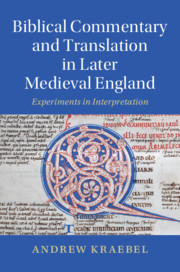This article examines the retrieval of patristic exegesis in two major figure in Catholic Ressourcement theology: Henri de Lubac and Yves Congar. Henri de Lubac's driving concern in his biblical writings is not so much to chronicle the history of interpretation as it is to explicate the great theological synthesis, which underlies the doctrine of the fourfold sense of Scripture. For de Lubac, this synthesis, wherein the totality of Christian doctrine and practice is centered in Christ and grounded in the reading of Scripture, is an essential component of Christianity. De Lubac encourages the integration of this theological vision with modern biblical studies, but he does not offer much as to what such an integration might look like in practice. Congar, building upon de Lubac's work, goes beyond de Lubac in making concrete efforts to integrate some of the theory and practice of patristic interpretation with modern exegesis. Important here is Congar's notion of “typological tradition” whereby the divine mystery concealed and revealed in the realities presented by the biblical text, unfold in the tradition, doctrine, and practice of the Church.


